On-Demand Blood Sample Delivery
Germany: Speed up emergency care in rural areas

52 km
average distance
(round trip)

18 min
average flight time
(till delivery)
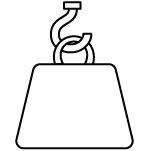
250 g
average payload
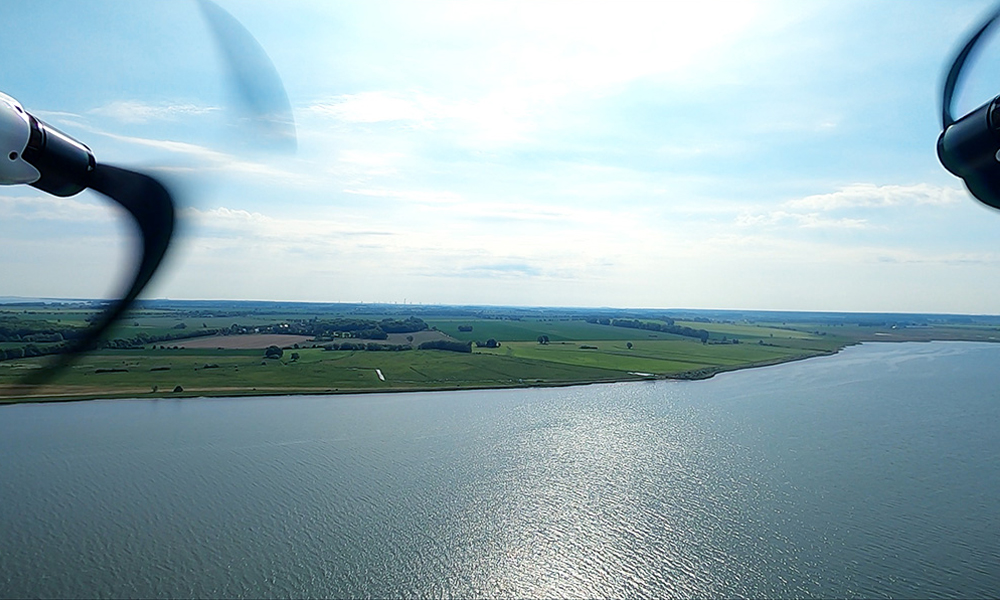
Challenge
Challenge
Challenge
Challenge
26 kilometers – that is the distance over which blood samples must be transported for analysis in rural Northeastern Germany. If a patient at Wolgast District Hospital urgently needs a blood transfusion, the appropriate donor blood can only be determined at Greifswald University – often a 45-minute drive by car.
However, regular couriers usually only make this trip once or twice a day.
The remote island of Pentecost is one of 83 islands in the South Pacific that make up the nation of Vanuatu. The 60 km long island is made up predominantly of mountainous terrain covered in dense jungle. In many cases, the islanders don’t have access to roads, electricity or permanent healthcare facilities.
Providing access to vaccines in the most remote communities involves nurses travelling from health centers, sometimes having to hike for several hours or days, or travel by boat around the island. Even short distances can take long and costly hours in which the heat-sensitive medical supplies are exposed to the tropical heat and arduous travel conditions.
26 kilometers – that is the distance over which blood samples must be transported for analysis in rural Northeastern Germany. If a patient at Wolgast District Hospital urgently needs a blood transfusion, the appropriate donor blood can only be determined at Greifswald University – often a 45-minute drive by car.
However, regular couriers usually only make this trip once or twice a day.
26 kilometers – that is the distance over which blood samples must be transported for analysis in rural Northeastern Germany. If a patient at Wolgast District Hospital urgently needs a blood transfusion, the appropriate donor blood can only be determined at Greifswald University – often a 45-minute drive by car.
However, regular couriers usually only make this trip once or twice a day.
Solution
Solution
Solution
In a joint effort, the Greifswald University Medical Center, the German Air Rescue Service DRF Luftrettung and Wingcopter successfully tested regular drone flights, delivering blood samples between the two hospitals as part of the MV|LIFE|DRONE Challenge.
The project funded by the German Federal Ministry of Health and the Ministry of Energy, Infrastructure and Digitalization of Mecklenburg-West Pomerania. It intended to identify ways of improving structures of regional emergency care by integrating Unmanned Aircraft Systems (UAS) into the rescue chain and emergency medical transports.
In a joint effort, the Greifswald University Medical Center, the German Air Rescue Service DRF Luftrettung and Wingcopter successfully tested regular drone flights, delivering blood samples between the two hospitals as part of the MV|LIFE|DRONE Challenge.
The project funded by the German Federal Ministry of Health and the Ministry of Energy, Infrastructure and Digitalization of Mecklenburg-West Pomerania. It intended to identify ways of improving structures of regional emergency care by integrating Unmanned Aircraft Systems (UAS) into the rescue chain and emergency medical transports.
In a joint effort, the Greifswald University Medical Center, the German Air Rescue Service DRF Luftrettung and Wingcopter successfully tested regular drone flights, delivering blood samples between the two hospitals as part of the MV|LIFE|DRONE Challenge.
The project funded by the German Federal Ministry of Health and the Ministry of Energy, Infrastructure and Digitalization of Mecklenburg-West Pomerania. It intended to identify ways of improving structures of regional emergency care by integrating Unmanned Aircraft Systems (UAS) into the rescue chain and emergency medical transports.
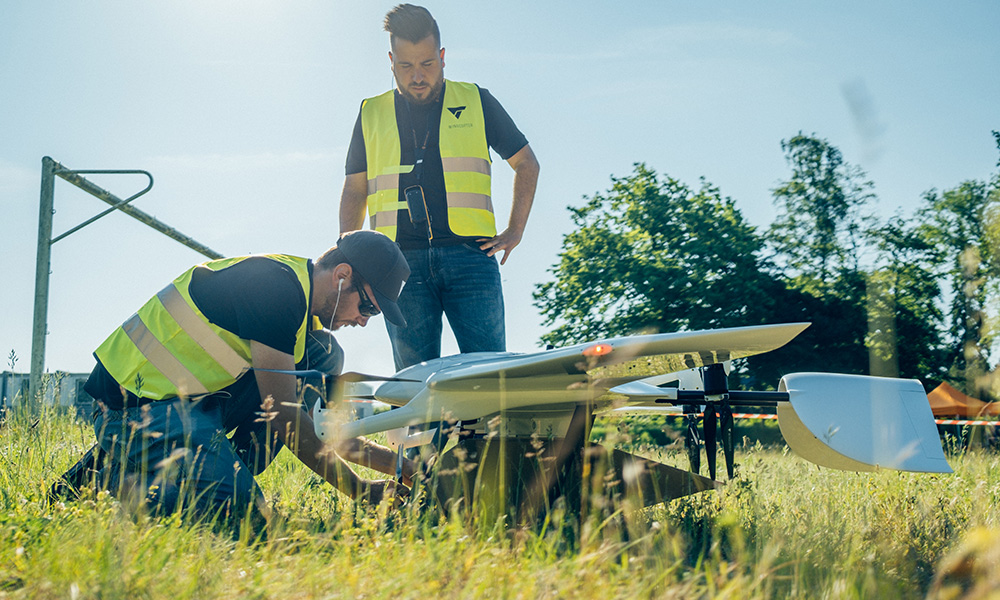
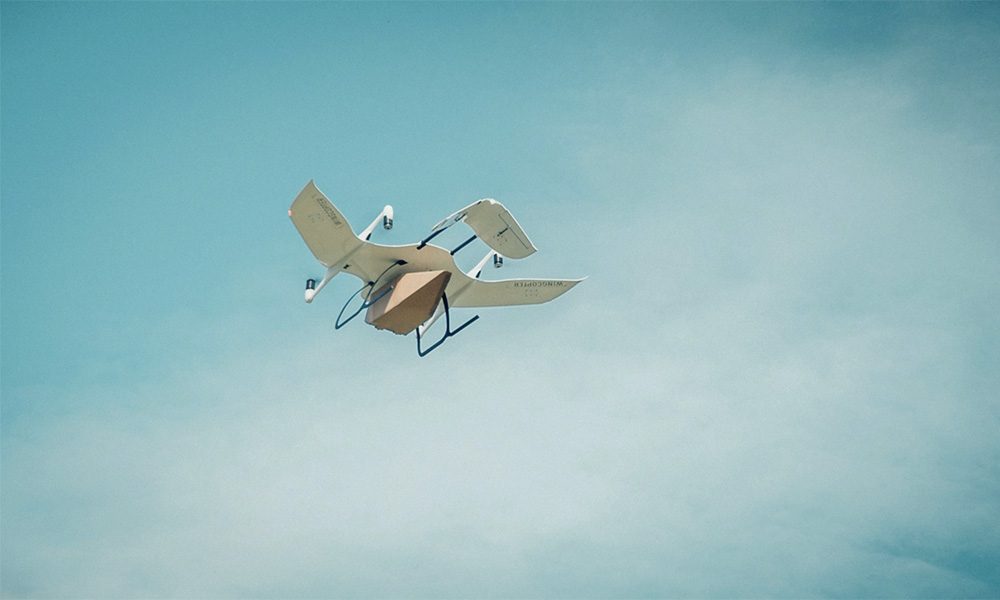
Outcome
Outcome
Outcome
The flights beyond the pilots’ visual line of sight (BVLOS) carried a pneumatic tube including 250 grams of blood samples. The Wingcopter drones completed the 26-kilometer one-way-route in an average time of 18 minutes, nearly twice as fast as ground-based transport. Equally important they could be deployed on-demand, whenever needed.
The project showed that the use of drones can significantly speed up emergency medical care in rural areas and thus help save lives.
The flights beyond the pilots’ visual line of sight (BVLOS) carried a pneumatic tube including 250 grams of blood samples. The Wingcopter drones completed the 26-kilometer one-way-route in an average time of 18 minutes, nearly twice as fast as ground-based transport. Equally important they could be deployed on-demand, whenever needed.
The project showed that the use of drones can significantly speed up emergency medical care in rural areas and thus help save lives.
The flights beyond the pilots’ visual line of sight (BVLOS) carried a pneumatic tube including 250 grams of blood samples. The Wingcopter drones completed the 26-kilometer one-way-route in an average time of 18 minutes, nearly twice as fast as ground-based transport. Equally important they could be deployed on-demand, whenever needed.
The project showed that the use of drones can significantly speed up emergency medical care in rural areas and thus help save lives.
"We are continuing to work towards the goal of shortening long distances in the region for the benefit of our population. Key to this is the integration of new technologies into existing rescue and care systems as part of comprehensive care concepts."
Dr. Mina Baumgarten
Project Manager of the MV|LIFE|DRONE-Challenge project
Impressions
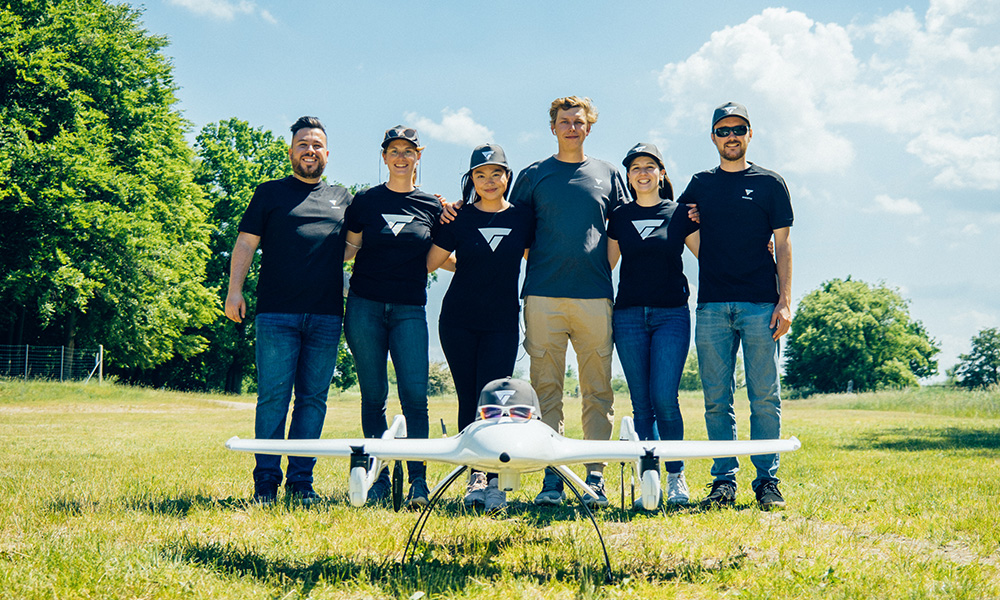
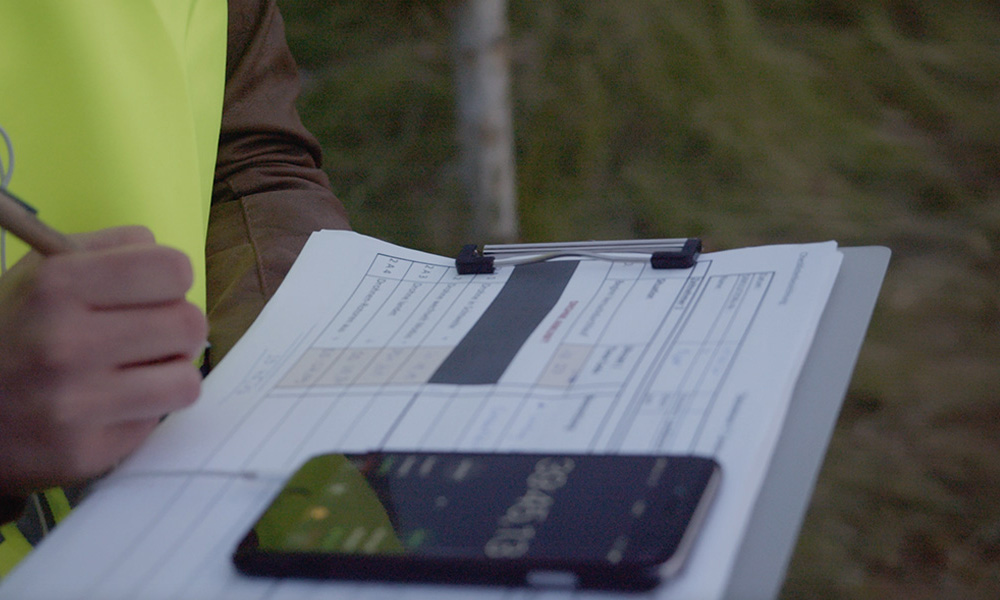
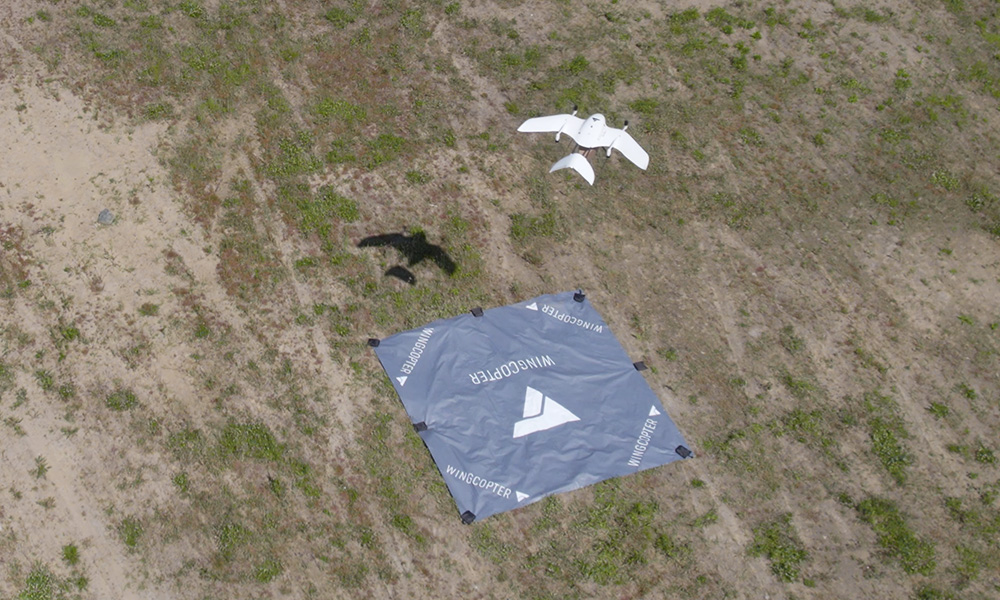
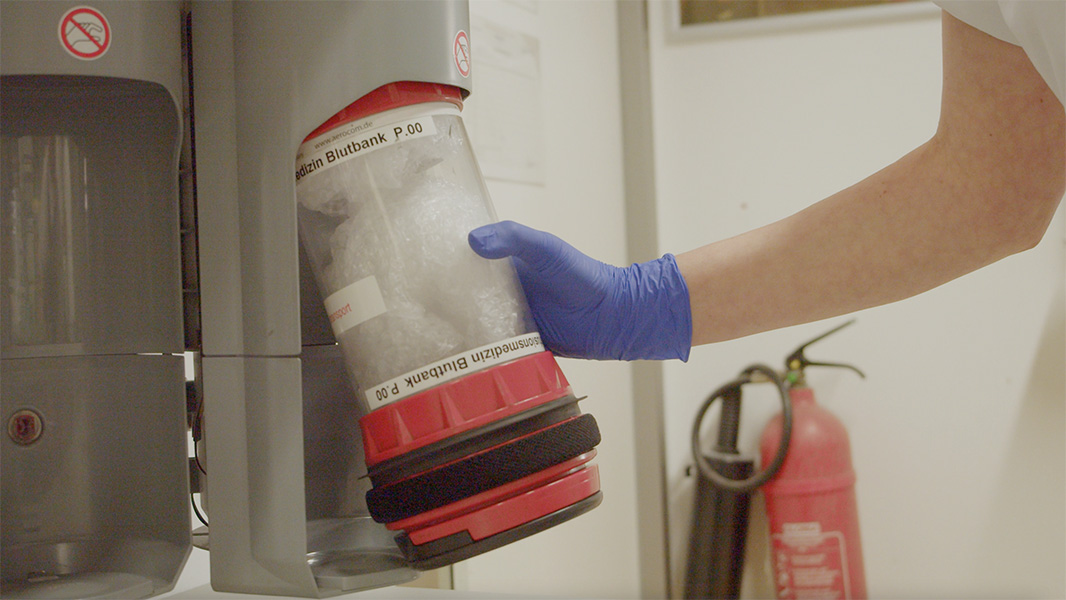

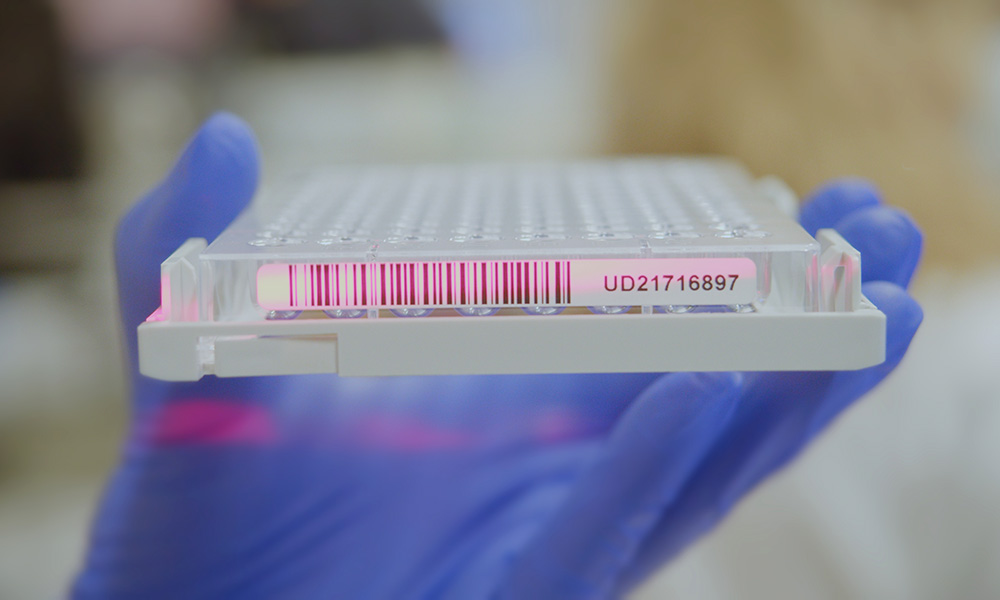
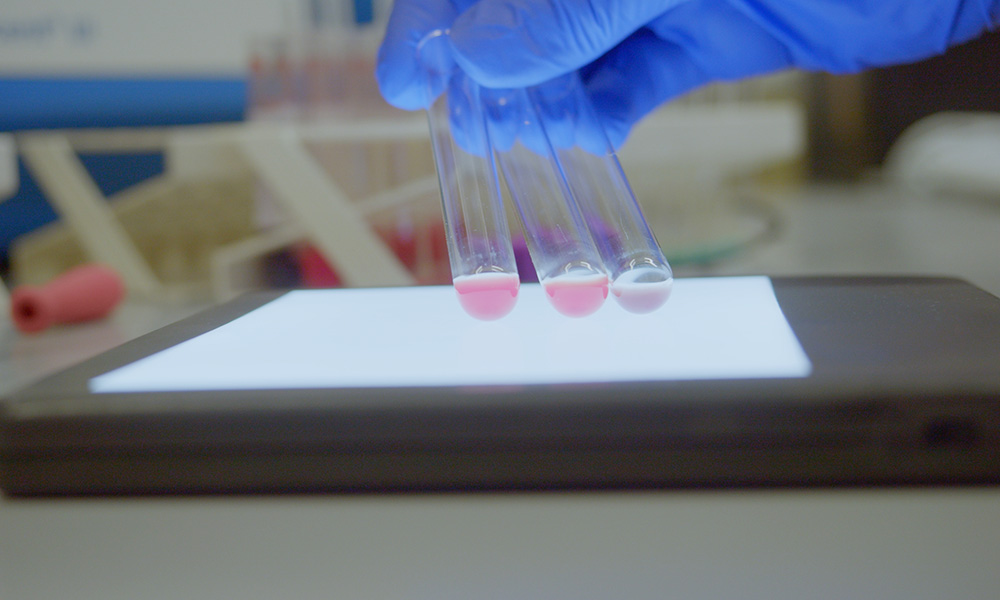
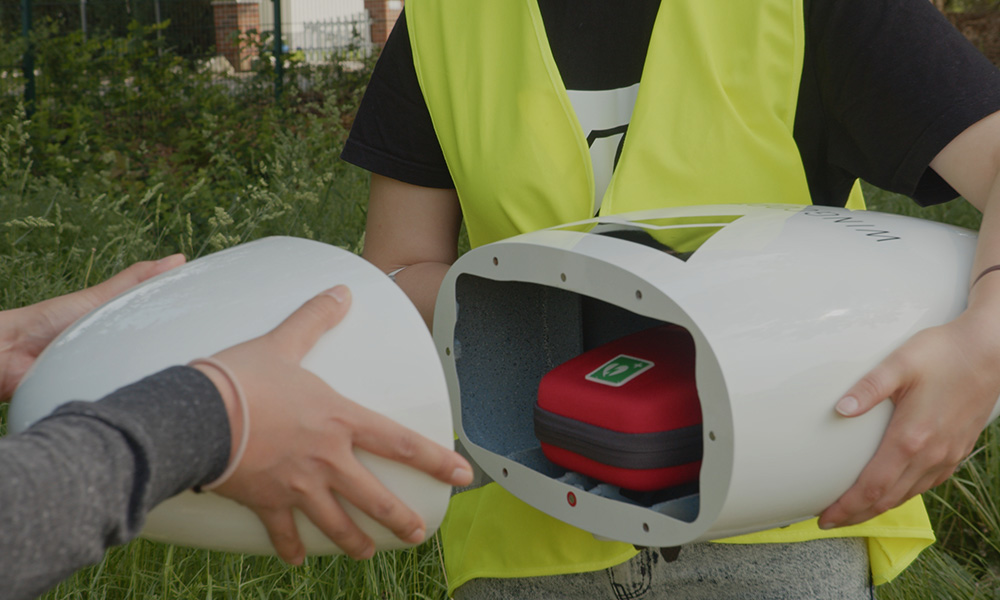
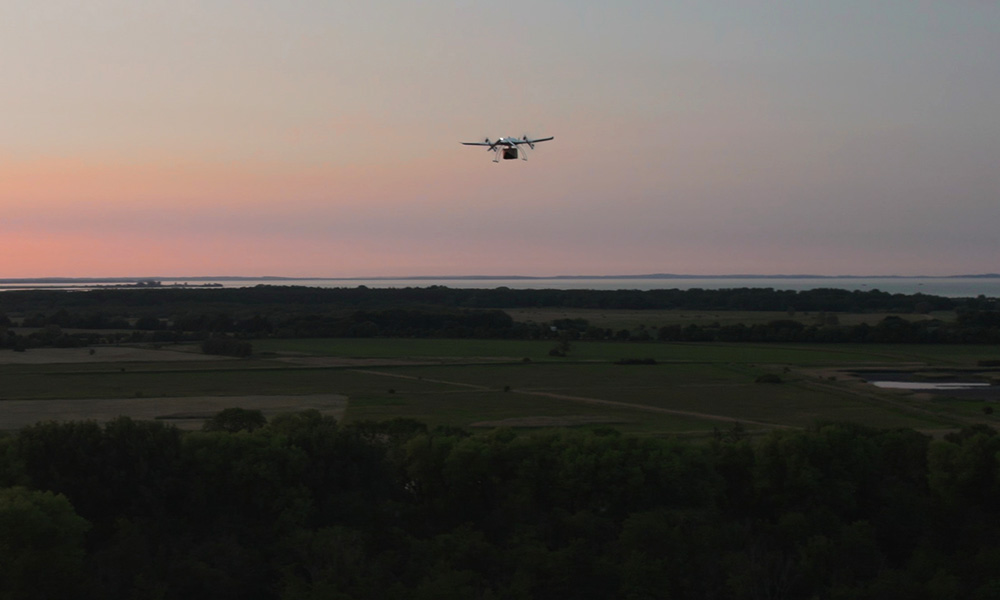
Connect with us and discover what our drone solutions can do for you
Stay up-to-date
Sign up for our newsletter to receive the latest news about our product development, interesting projects, new strategic partners, company milestones etc.

